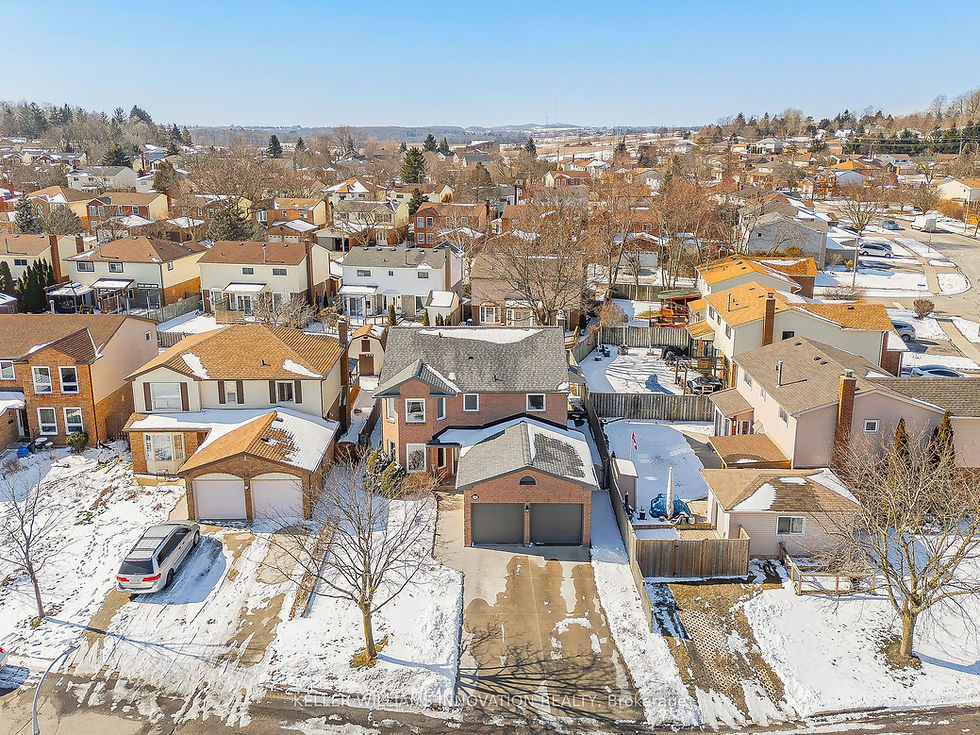FHSA Canada: What It Is and How It Works
- Team Pinto

- Jan 6, 2023
- 5 min read

Are you a first time home buyer who is looking to buy a new Waterloo Region home within the next year? Well, there’s some good news for you! With the launch of First Home Savings Account (FHSA) later this year, you may be able to buy that property and save money – all at the same time!
In this blog post, we are going cover all your basic FHSA information needs. We hope that by the end of it, you are able to identify whether you’re a potential beneficiary of this new legislation, how to take advantage of it as an FHSA holder and its impact on you as a taxpayer.
What Is The First Home Savings Account (FHSA) in Canada?
A First Home Savings Account (FHSA Canada) is a type of savings account that is specifically designed to help qualifying first-time home buyers in Canada save for the costs associated with purchasing a home.
FHSA accounts typically offer income tax advantages, such as tax-free interest earnings and free withdrawal from FHSA savings for any qualifying home purchase or home buying expense.
First Home Savings Account (FHSA) Status and Eligibility in Canada
Is The FHSA Available In Canada?
Not quite yet! But expect things to change sometime around April 1st, 2023. While the Tax-Free First Home Saving Account (FHSA) is not currently available in Canada, the Canadian Federal Government proposed this new legislation as part of Bill C-32 (Fall Economic Statement Implementation Act, 2022) and assuming that it is passed, the FHSA Canada timeline is currently set for mid-2023.
How Can I Open An FHSA In Canada?
There are a number of financial institutions that will likely allow individuals to open an FHSA Account in Canada beginning in mid-2023. Depending on what your goal is simply Google the following institutions, “FHSA Scotiabank”, “FHSA account RBC”, “FHSA account TD” or “FHSA account CIBC”.
Alternately you can ask a real estate professional about them, as its part of our job to not only keep up with the local real estate markets we serve but also the things that affect how people buy homes in our market, like, in this case, new opportunities for first time homebuyers.
Who Will Be Eligible For An FHSA in Canada?
The restrictions expected to be attached to just who can make use of an FHSA are not as complicated as you might imagine:
Must be a resident of Canada.
Must be at least 18 years of age. There is no FHSA age limit.
Must not have owned a home and lived in it as your primary residence in the 4 years prior to the FHSA account being opened. This also includes a surviving spouse or common-law partner’s primary residence, assuming you are still together at the time of opening it.
First Home Savings Account (FHSA) Contribution Limits
What Is The Maximum FHSA Contribution?
The FHSA limit proposed for first-time home buyers in Canada is a lifetime contribution limit of $40,000 tax-free. This is similar to tax-free savings accounts (TFSA) or registered retirement savings plans (RRSP) that exist right now.
The First Home Saving Account has an annual contribution limit of $8,000 per year, including 2023. FHSA contributions must be made in the calendar year.
What is valuable to note however is that if you didn’t hit the annual contribution limit of $8,000 in the previous year you can roll this additional contribution room into the following year without affecting its contribution limits.
For example, let's imagine that you were only able to contribute $2,000 in 2023. This would allow you to roll over $6,000 into 2024 giving you a maximum FHSA contribution of $14,000 in 2024. Also important to note though, you must have already opened your FHSA account to be eligible for the rollover.
Who Can Contribute To Your FHSA Account Canada?
While only the FHSA account owner may deduct contributions, parents can contribute to their child’s First Home Savings Account by ‘gifting’ their child the funds and having them make a qualifying contribution.
First Home Saving Account (FHSA) Qualifying Withdrawals
What Is The Maximum FHSA Withdrawal?
There is no maximum qualifying withdrawal, however, your FHSA withdrawal must meet certain conditions in order to be tax-free. Note that when you are withdrawing funds, your contribution limits do not reset.
You must be a first-time home buyer when you make the qualifying withdrawal or intend on moving into your first home within 30 days of the withdrawal from your first home savings account.
The home or condo must be located in Canada.
There must be a written agreement for the purchase of your first home. This also includes the construction of a first home which is also eligible. Both must be in writing with a move or build date before October 1st of the following year.
What happens to lany eftover funds? Your additional funds can be transferred to an RRSP or RRIF as long as it’s done before December 31st of the following year. At this time your FHSA will no longer be an FHSA.
Alternatives To First Home Savings Account (FHSA)
FHSA vs RRSP: What’s The Better Option For Canadians?
Whether you choose to save for your first home, retirement or both is really a question for you and your goals. If your intention is to buy a home, the FHSA is a saving tool that makes a lot of sense for tax purposes.
Owners of FHSAs are able to withdraw $40,000 tax-free at the time of buying their home. Especially since you can transfer funds over to your RRSP and those transfers do not reduce or limit your available RRSP contribution room.
What Other Options Do I Have As A First-Time Waterloo Region Home Buyer?
First-time home buyers may be eligible for various savings and investment programs, such as tax credits, rebates and down payment assistance. It’s a good idea to research your options and speak with a financial advisor or lender to determine the best course of action for you as an individual. Some common savings options for first-time home buyers include:
Tax credits: Some government programs offer tax credits to help first-time buyers offset the cost of purchasing a home. These credits can be applied to your income taxes -reducing your payments as a taxpayer. In Ontario, you can apply for the first-time home buyer tax credit and the first-time home buyer land transfer tax rebate.
Down payment assistance: Many individuals – young Canadians in particular – struggle to come up with the large down payment required to purchase a home. Down payment assistance programs can provide grants or low-interest loans to help cover this cost.
It’s important to carefully consider your options and weigh the pros and cons of each before making a decision. A local real estate professional, financial advisor or lender can help you understand your options and choose the best course of action for your situation. The last thing you want is unsuspecting tax consequences to complicate your exciting new journey as a homeowner!



